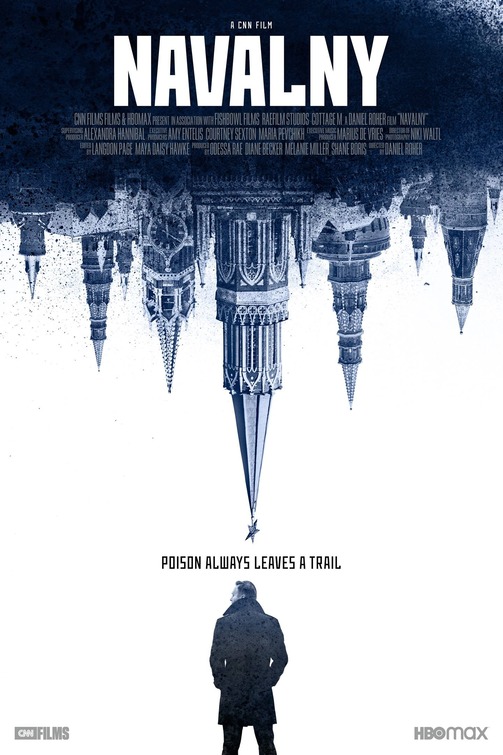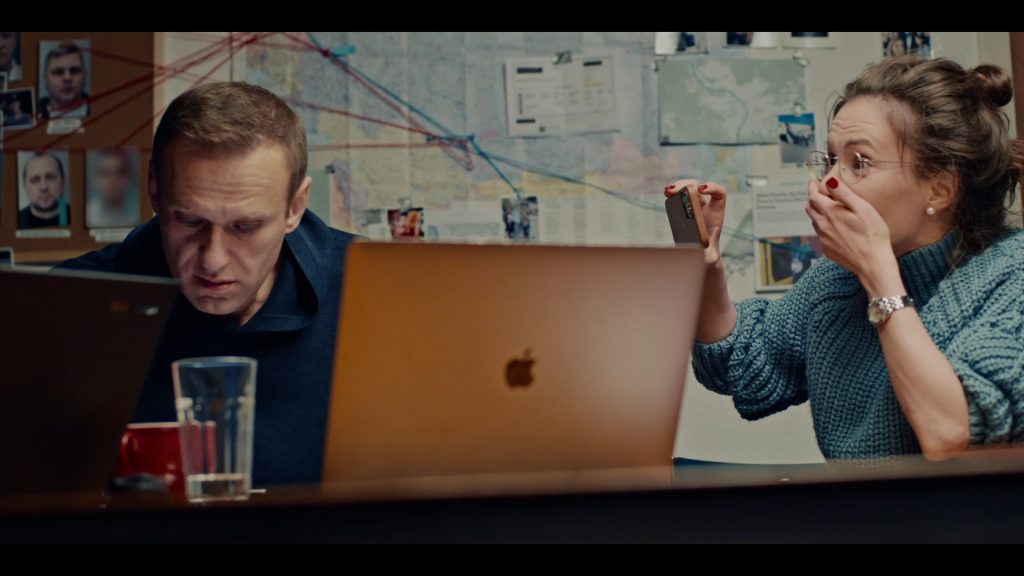
⭐⭐⭐⭐
Rating: 3.5 out of 5.My Octopus Teacher, Summer of Soul, and now Navalny. On March 12, the submission officially joined fellow recent Oscar winners when it received the award for Best Documentary. The win wasn’t a huge surprise. It was slightly favored to win over the other nominees. The feature had already won the top award at the Producers Guild and the BAFTAs. The picture is a political portrait centered around Russian opposition leader Alexei Navalny and his crusade against an authoritarian regime. Given the current affairs surrounding Ukraine, its relevance as an exposé of Russian politics makes it a particularly timely selection.
The film recounts the events related to Navalny’s poisoning and the subsequent investigation. On August 20, 2020, he got sick during a flight to Moscow. The activist was hospitalized in serious condition. He was taken to a hospital in Russia after an emergency landing and put in a coma. Two days later, under accusations he wasn’t receiving treatment with his best interest in mind, he was evacuated to the Charité hospital in Berlin, Germany. It was later confirmed he had been poisoned with a Novichok nerve agent. Navalny blamed president Vladimir Putin for his poisoning, while the Kremlin repeatedly denied involvement.
The high point is a jaw-dropping “gotcha” moment. Navalny, along with investigative journalist Christo Grozev and Maria Pevchikh, the head investigator for the Anti-Corruption Foundation, are all on the phone. They’ve identified a list of potential Kremlin agents likely responsible for his sickness. Adopting the persona of one of Putin’s accomplices, Navalny demands to know why the assassination failed. To everyone’s shock, the voice on the line attempts to provide an answer. While the rest of the documentary is adequate, nothing else comes close to this development.
Navalny ultimately got better in Germany. He flew back to Russia, where government officials greeted him at the airport and detained him for violating parole conditions. In February 2022, Navalny was charged with fraud and sentenced to a nine-year term at a maximum-security penal colony. Amnesty International has described the trials as a politically motivated sham. His fate remains uncertain. Meanwhile, this account remains a testament to his life and work.
03-01-23


3 Responses
Your review makes me want to see this. “Gotcha moment”, has me intrigued
I’m glad my review inspired you to see this…. also it won the Oscar.
It was even better than I expected! 3 1/2 ⭐️